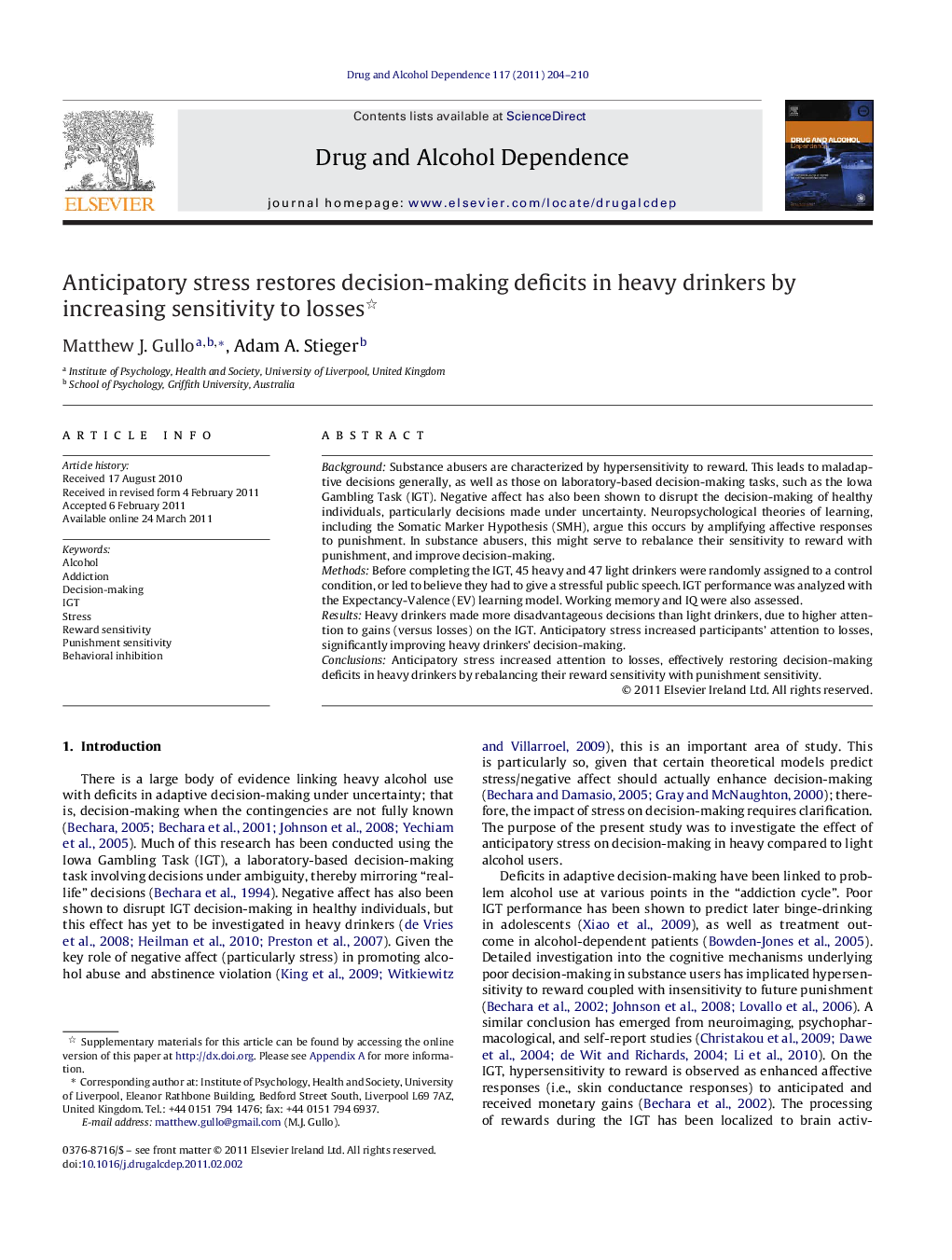| کد مقاله | کد نشریه | سال انتشار | مقاله انگلیسی | نسخه تمام متن |
|---|---|---|---|---|
| 1070325 | 1486173 | 2011 | 7 صفحه PDF | دانلود رایگان |

BackgroundSubstance abusers are characterized by hypersensitivity to reward. This leads to maladaptive decisions generally, as well as those on laboratory-based decision-making tasks, such as the Iowa Gambling Task (IGT). Negative affect has also been shown to disrupt the decision-making of healthy individuals, particularly decisions made under uncertainty. Neuropsychological theories of learning, including the Somatic Marker Hypothesis (SMH), argue this occurs by amplifying affective responses to punishment. In substance abusers, this might serve to rebalance their sensitivity to reward with punishment, and improve decision-making.MethodsBefore completing the IGT, 45 heavy and 47 light drinkers were randomly assigned to a control condition, or led to believe they had to give a stressful public speech. IGT performance was analyzed with the Expectancy-Valence (EV) learning model. Working memory and IQ were also assessed.ResultsHeavy drinkers made more disadvantageous decisions than light drinkers, due to higher attention to gains (versus losses) on the IGT. Anticipatory stress increased participants’ attention to losses, significantly improving heavy drinkers’ decision-making.ConclusionsAnticipatory stress increased attention to losses, effectively restoring decision-making deficits in heavy drinkers by rebalancing their reward sensitivity with punishment sensitivity.
Journal: Drug and Alcohol Dependence - Volume 117, Issues 2–3, 1 September 2011, Pages 204–210